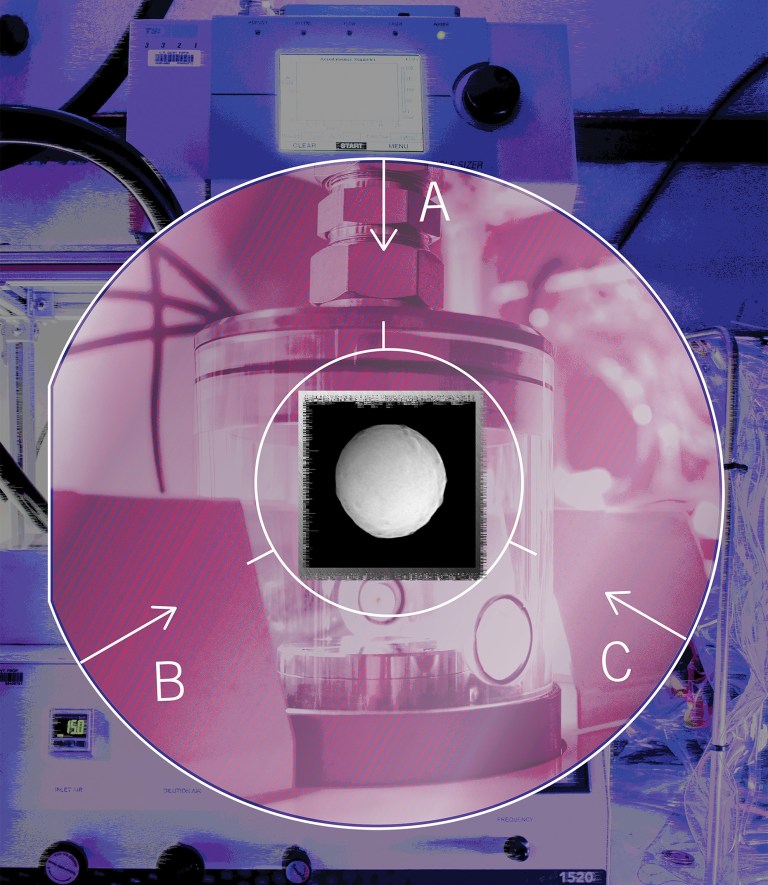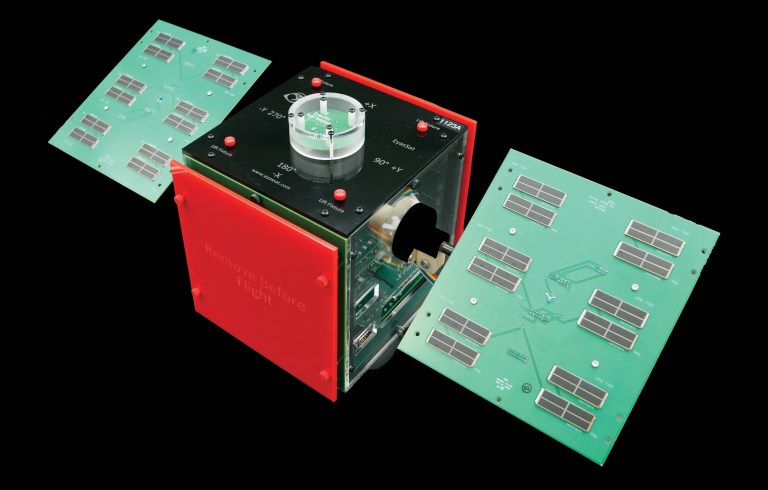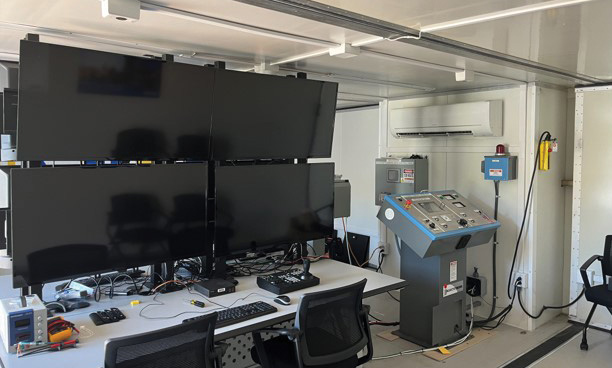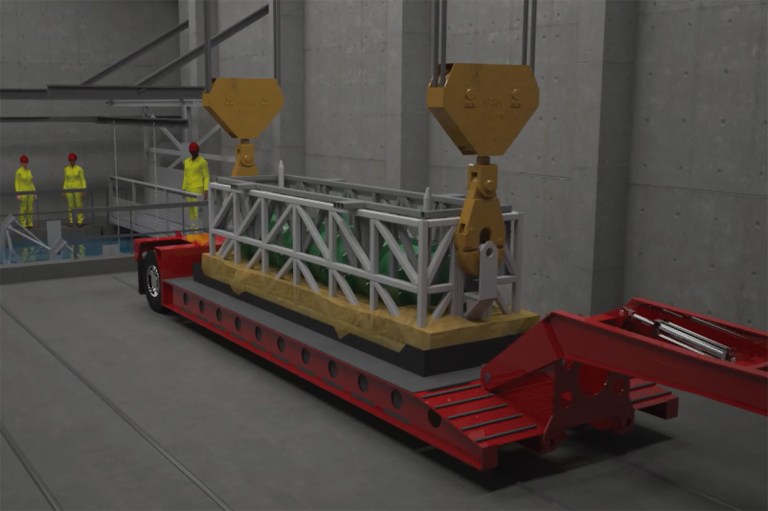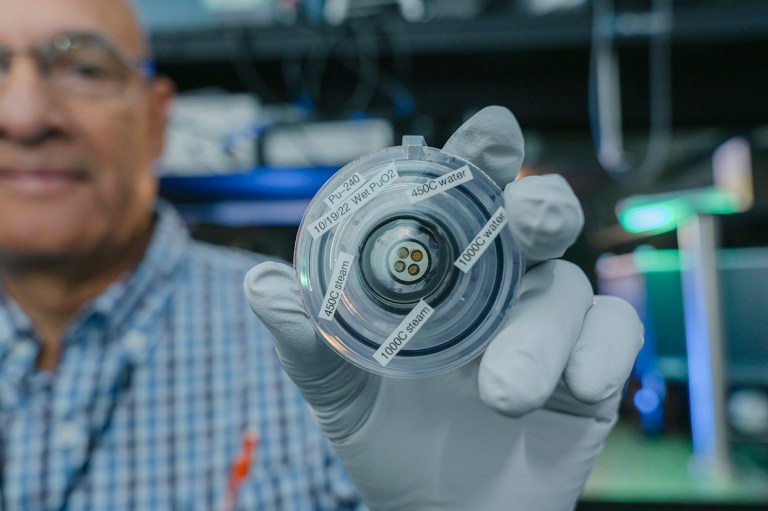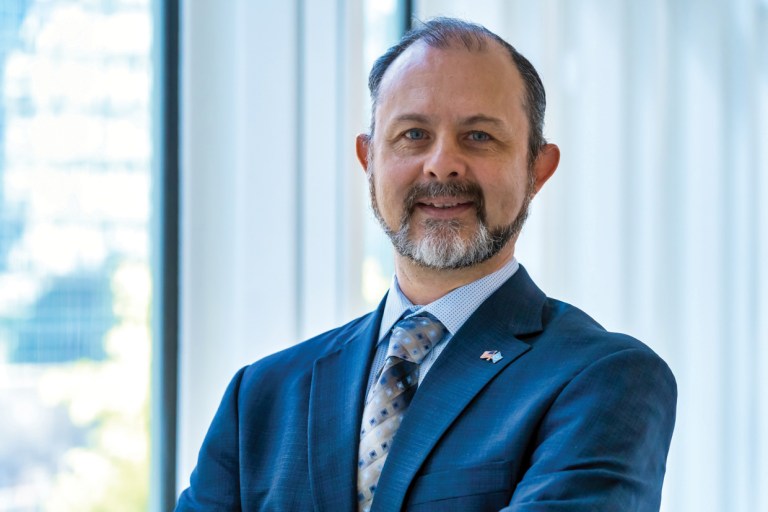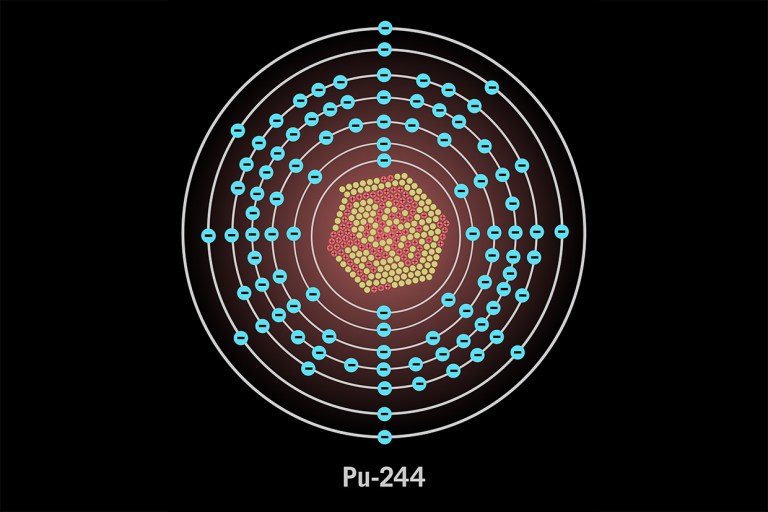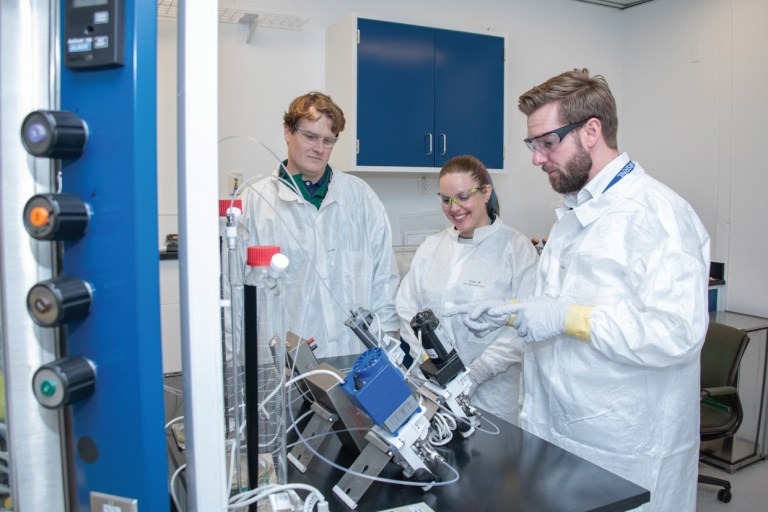Tiny Particles, Big Impact
SRNL’s Particle Reference Materials Support Nonproliferation Efforts Ensuring the safe and effective management of nuclear materials and preventing the spread of nuclear weapons is a matter of national security. The Savannah River National Laboratory is contributing to nuclear nonproliferation by providing high-quality particle reference materials using their THermally Evaporated Spray for Engineered Uniform particulateS (THESEUS)…
